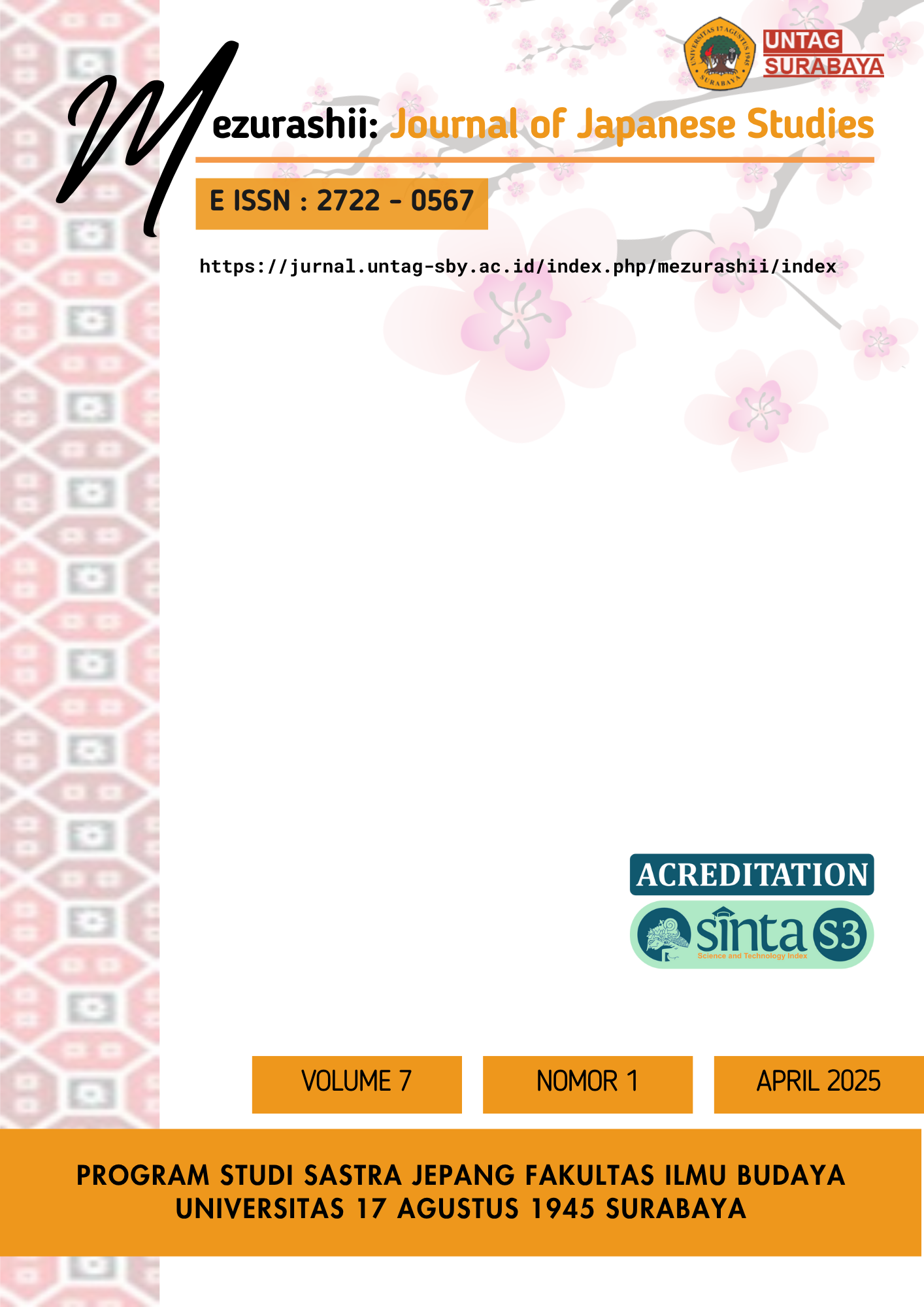Jejepangan Having Fun: Tren dan Event Komunitas Cosplay di Jember
DOI:
https://doi.org/10.30996/mezurashii.v7i1.12583Abstract
The development of interest in Japanese popular culture, especially cosplay and anime, among young people in Jember has shown a significant increase over time. This study aims to describe the development of cosplay culture in Jember and the factors that influence it. The research methods used are direct observation of cosplay events, interviews with cosplayers and event organizers, and analysis of cosplay community social media. Using Joseph Nye's soft power theory and Jean Baudrillard's hyperreality, this study found that the cosplay trend in Jember has become a medium for cultural expression and identity for young people, especially through various cosplay events and competitions held in shopping centers, tourist destinations, educational institutions, hotels, and cafes with events including Coswalk Competition, Cosplay Perform, JSong Competition, cover dance and sales of anime, manga, and game merchandise. The results of the study indicate the existence of hyperreality, namely cosplayers bringing to life the fictional characters they play, thus providing space for escapism and creativity. This study also found the role of cosplay as a form of Japanese cultural soft power that is accepted by the local community in Jember.
Keywords: cosplay, Jember, Japanese popular culture, soft power, hiperreality
Downloads
Downloads
Published
How to Cite
Issue
Section
License
Authors publishing in the Journal will be asked to sign a Copyright Assignment Form. In signing the form, it is assumed that authors have obtained permission to use any copyrighted or previously published material. All authors must read and agree to the conditions outlined in the form, and must sign the form or agree that the corresponding author can sign on their behalf. Articles cannot be published until a signed form has been received.It is a condition of publication that authors assign copyright or license the publication rights in their articles, including abstracts, to email jurnalmezurashii@untag-sby.ac.id. . This enables us to ensure full copyright protection and to disseminate the article, and of course the Journal to the widest possible readership in print and electronic formats as appropriate.








